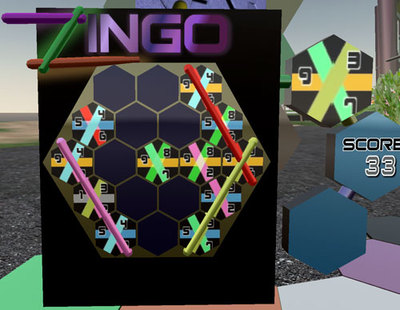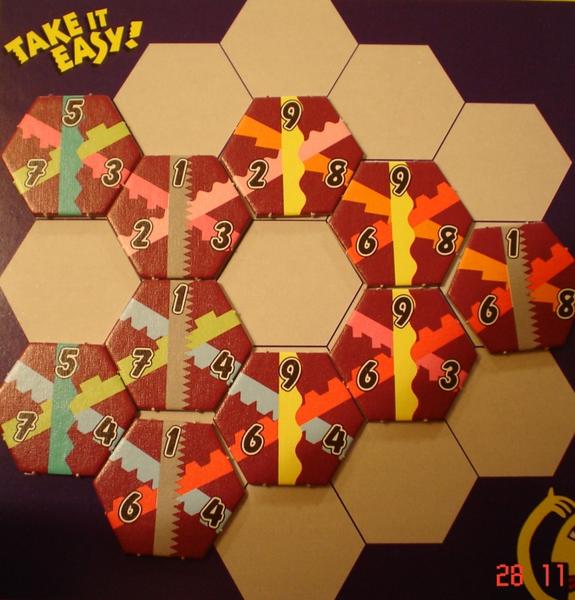January 30, 2008
at 8:53 pm
· Filed under General, MMORPGs, New Media
Syllabus for my graduate seminar this spring:
SIMULATIONS
Is simulation the consummate genre of the 21st century? How can we negotiate between simulation as a trope of science fiction and cultural fantasy (the Matrix, to name one obvious example) and the non-virtual reality of the Strip in Las Vegas, or the best-selling video game franchise The Sims? The objective of this seminar will be to range freely between simulation as the essential focalizer of the postmodern, between practices of applied modeling in humanities research online (such as the Virtual Vaudeville project, which painstakingly recreates a performance in a turn of the century Manhattan theater), and between simulation as an established mode and form of digital gaming. We will read widely in the literature and theory of simulation, from obvious high postmodern candidates like DeLillo, Baudrillard, and Haraway to more exotic sites of engagement, such as military technology, theoretical mathematics, artificial life, and the philosophical discourse of modeling. Indeed, our goal will be eventually to adjudicate among three interrelated terms: simulation, modeling, and gaming; and to come to grips with their import and distinctions in the contemporary milieu. To what extent are these forms and practices rivals or competitors to the literary? Can a simulation (or a game) sustain a narrative? Is the virtual merely the latest act or art of wish fulfillment in an age-old progression of mimetic conceits, or is it something else? Something new?
A key component of the course will be a set of hands-on explorations using the popular virtual world Second Life. You will engage with the cultures and sub-cultures of Second Life by creating avatars and participating in the communities and events of this thriving virtual world (current population: 10 million). With only slightly greater investment, you may also learn to “build” in Second Life, contributing your own objects, structures, and experiences to the world. Part simulation, part model, and part game, Second Life will be the social arena in which we seek to activate and literalize our weekly conversations.
Permalink
August 7, 2007
at 1:24 pm
· Filed under MMORPGs, New Media, Preservation
[News of new funded research I’m involved in. MGK]
The Maryland Institute for Technology in the Humanities (MITH) is delighted to announce we are partnering with the University of Illinois at Urbana-Champaign, Stanford University, the Rochester Institute of Technology, and Linden Lab (creators of Second Life) for a project funded by the Library of Congress’s National Digital Information Infrastructure and Preservation Program (NDIIPP) on PRESERVING VIRTUAL WORLDS. The two-year $590,000 award under NDIIPP’s Preserving Creative America program will be shared among the project participants.
The researchers leading the work at the University of Maryland are NEIL FRAISTAT (Professor of English and Director, MITH), MATTHEW KIRSCHENBAUM (Associate Professor of English and Associate Director, MITH), and KARI KRAUS (Assistant Professor, College of Information Studies and English).
The Preserving Virtual Worlds project will explore methods for preserving digital games, interactive fiction, and shared realtime virtual spaces. Major activities will include developing basic standards for metadata and content representation and conducting a series of archiving case studies for early video games and electronic literature, as well as Second Life, the popular and influential multi-user online world. According to Fraistat, “This award from the Library of Congress places MITH and its partners at the forefront of those addressing a range of increasingly urgent questions involving the preservation of creative works that are “born digital”–from interactive electronic literature, to digital games, to virtual worlds such as Second Life. We are especially pleased to have as an industry partner, Linden Lab, the creator of Second Life itself.”
In addition to contributing to the work on Second Life, Maryland will take the lead on interactive fiction/electronic literature as a sub-domain of the project, and will be occupied with all aspects of scoping, metadata, intellectual property, evaluation, and archiving of these materials. We will initially focus on a small number of targeted works of recognized cultural and literary significance, including former Poet Laureate Robert Pinsky’s 1984 interactive novel Mindwheel, Will Crowther’s ADVENTURE (written in 1975 and widely considered the earliest interactive text of its kind), and selected items from a large private collection of 1980s-era hardware and software recently gifted to MITH. The international Electronic Literature Organization will also extend its support and in kind contributions to our work here at Maryland.
The project begins in January 2008. Notice of other recent Preserving Creative America NDIIPP awards is available here:
http://www.loc.gov/today/pr/2007/07-156.html
Permalink
August 4, 2007
at 6:49 pm
· Filed under General, MMORPGs, New Media, Wargames
Nice thread on board wargames unspooling on Terra Nova, a group blog that serves as a hub for the virtual worlds brain trust. They give a shout out to the first piece of online writing I ever did about wargames, “I Was a Teenage Grognard,” which originated as a blog entry over on my MGK site and which seems to have found a good audience. That same piece garnered an extended reference over at Scratchpad a few weeks ago.
I’m glad to see the interest in board wargames in the mainstream ludology community, and that more and more folks are picking up on what’s seemed obvious to me for a while now, that these games remain relevant and have things to teach designers, players, and game scholars.
That’s basically the thesis of a longish piece I have forthcoming in Third Person, the follow up to the First Person and Second Person volumes already published by the MIT Press, and, like its predecessors, expertly edited by Pat Harrigan and Noah Wardrip-Fruin. My chapter, called “War Stories: Board Wargames and Vast (Procedural) Narratives,” argues that it is procedural granularity that stimulates what Marie-Laure Ryan has termed narrativity, i.e. a game’s potential to serve as a narrative agent. The volume should be out in late 2008.
Permalink
February 24, 2007
at 9:54 pm
· Filed under MMORPGs, New Media, Other Boardgames, Representation
Second Life has become a venue for board games. Part of a genre of so-called “*ingo” games (sort of souped up Bingo, fast playing and very addictive), the latest, Zingo, is typical of the lot: “you comprehend it instantly, can play it reasonably well right away, and soon discover layers of strategy.” Game play involves transactions of Linden dollars, and thus becomes part of Second Life’s economy, to such an extent that according to one write-up the games have “dramatically changed the landscape.”
Of interest to me here is the recursion and overt remediation: Zingo is apparently derived (ripped) from the 1994 board game Take It Easy!.
[Thanks to Mike Siggins on Perfidious Albion for this.]
 Â Â Â Â Â
     
Zingo in Second Life and Take It Easy! in real life.
Permalink
January 5, 2007
at 11:37 pm
· Filed under MMORPGs
Note: ZoI will sometimes cover subjects other than board wargames; I intend to make good use of Categories to make different facets of the blog as accessible as possible.
I just came across this online copy of Henry Melton’s “Catacomb.” Originally published in 1985 in TSR’s Dragon magazine, this short story is a remarkably prescient anticipation of contemporary MMORPGs, also including obvious elements of interactive fiction and MOOs/MUDs. I remember being enthralled by the concept at the time, and thinking that I’d be lucky to ever live in a world where such things were possible. The most striking aspect of the story today are undoubtedly the cash pay-offs the characters receive, a brute force literalization of the more elusive virtual economies charted by Castronova. Anyway,the story holds up quite well and is recommended reading for anyone interested in game studies and new media—indeed it should be accepted as a notable historical text in those fields, and is surely one of the earliest pieces of fiction about computer games.
Permalink
 Â Â Â Â Â
     